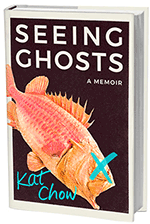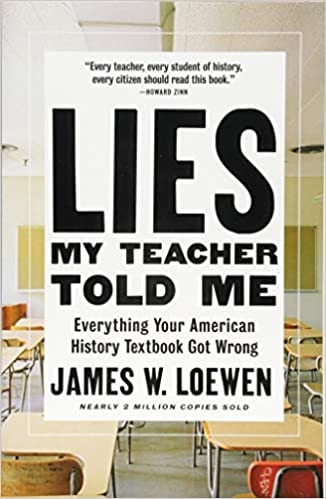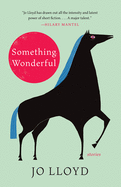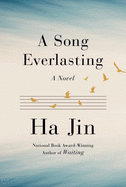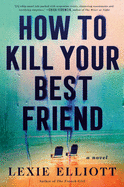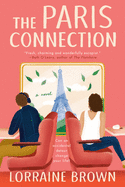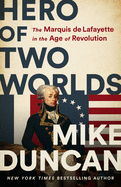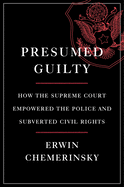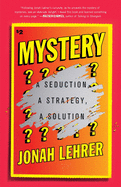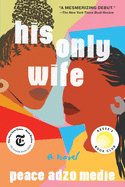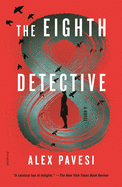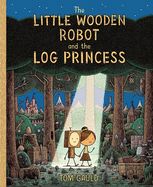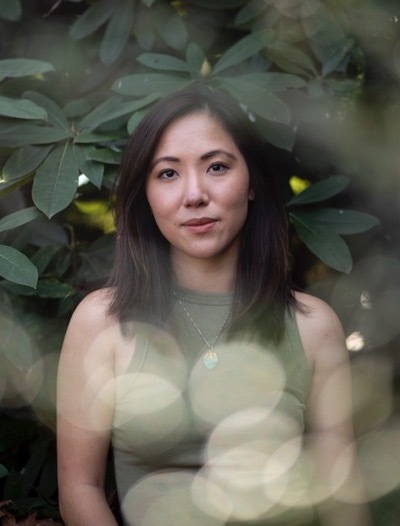 |
| (photo: Ariel Zambelich) |
A founding member of the popular podcast Code Switch at NPR, Kat Chow is a reporter and writer whose illuminating work on family, grief, and race has graced the pages of the Atlantic, the New York Times Magazine, the Cut and more. Raised in Connecticut, she began writing stories and poems in high school, and in college she drafted a novel that was "something like a fictionalized, very rough first draft" of what would become her debut memoir, Seeing Ghosts (Grand Central Publishing).
You've written about your mother (and your family as a whole) before, though mostly in essay and journalistic form. What made you decide it was time to write a memoir?
There were so many threads that I wanted to connect in my family's story, that included these tiny moments in our lives that I saw, paralleling one another's experiences across generations. It was an uncanny thing to notice the similarities in my life to generations before me, and I also wanted to fold in the context around our stories, too--the immigration patterns that dictated our lives, the laws, pivotal figures ahead of us, an interpretation of taxidermy as an act of grief, et cetera.
For Seeing Ghosts, I began by asking what it was that we owed, and how this idea of debt in its many definitions--filial duty, financial debt, debt to our ghosts, our selves, the places we call home, et cetera--was reflected in the different generations of my family. I also wanted to trace my family's loss and show how it wasn't just related to the grief over a person--it was the idea of racial melancholia, too, which I write about in some of the earlier chapters. I needed these observations to converge on the page as they had in my own brain.
Which were the most challenging parts to write?
It took me years to write the scenes of my mother's death and the immediate aftermath. I remember having dinner with a former colleague, who's kind of become like a writing godfather. He read many drafts of this book, and at this point in my process, I'd had a loose arrangement of scenes that I'd sent my editor. He observed that I hadn't written about my mother's death, and I made some noise about how I wasn't sure how to frame it.
He said, you need to write the thing. Write into how difficult it is. I leaned into it, turned the writing of it into a device, and then in revision, went back and sanded down its rough edges to turn it into something that was more polished but remained honest to its emotional currents.
It was also quite tricky to write the sections about Yung Wing, who is generally described as one of the first Chinese immigrants--Chinese Americans, really--to graduate from Yale. I wasn't sure how to describe why I gravitated toward him. I realized I was grappling with a general point-of-view issue. Where was I telling this story from?
Throughout my process of working on Seeing Ghosts, I tended to write a memory, and then layer meanings on top of it. I wanted the reader to have that same experience, and finding the best way to translate that was a challenge.
Grief memoirs are everywhere, and yet yours stands out because it is so committed to asking hard questions, exploring the parts of ourselves and our families we'd rather ignore. What was your ultimate goal in excavating your history this way?
Your question surfaces a discussion that my agent, Jin Auh, and my editor, Maddie Caldwell, and I have been having about Seeing Ghosts--and what it is. We're not sure Seeing Ghosts sits so squarely in the traditional grief memoir category. It's a book that is propelled by exploring loss, but it's also a sprawling, multi-generational story that is so much about family history, legacy and survival.
Another interviewer asked me if I saw this book as a grief memoir or a Chinese American memoir, and I was thrown by that question. I mean, why can't it be both? It can be both, of course, but also, I see Seeing Ghosts as this work of nonfiction that stretches across bounds.
Seeing Ghosts is about your mother, but it is also, ultimately, about your father, and the complicated relationship the two of you formed after her death. What was your father's reaction when he learned you were writing this book? Has he read the final version? How did the two of you discuss it together?
My father was always supportive of this book in his own way. Over the years, he's come to understand that writing has been my craft and something I'll always do.
So overall, this was not terribly surprising to him. I do think he was a bit surprised after reading the final version that so much of it was about him. I was, too. This was not quite the book I had in my head when I sold it to my publisher. But my father's story felt important to trace, and I was drawn to reflecting our complicated relationship with the honesty and depth it deserved--what it means to anticipate the loss of a parent when they're still around, in a way.
That's something that a lot of people are experiencing right now, with what's happening in our country and the immense uptick in hate crimes on Asian Americans and our Asian American elders. There's a tendency to want to take care of our parents, aunts, uncles, grandparents--and for me, I wanted to show that in the book in all of its thorny, tender forms. The ways in which you can have a relationship--or not much of one--with somebody but still care so deeply for them, even if neither of you are sure how to express your feelings or overcome your shared history and the ways in which you've hurt one another.
You tweeted that fellow reporters had repeatedly said you were limiting yourself by making your beat about Asian Americans. This book, of course, makes the case that their argument is ridiculous (and racist). But do you still hear that sentiment today? Why do you think that is?
I shared that anecdote on Twitter in the aftermath of the shootings in Georgia. This dynamic that surfaces often when something happens in a non-white space was apparent. I heard some accounts of reporters who were Korean American or Asian American being told they were "too close" to the story to do their jobs. I also had read stories of news outlets struggling to find reporters who spoke Korean or understood how to begin reporting within these communities.
I think when people told me that, they were well-meaning and wanted to give career advice. They seemed worried that I was given that beat because I'm Asian American--that it wasn't my choice. But it was certainly my choice, and my team at NPR was very supportive of that. It was always my choice.
I found these comments, about how I was limiting myself, so confusing. I saw so many stories about Asian Americans that weren't being told; it's an endless beat, and any story can be an Asian American story, just as all American stories are in a way about race. That's the thing I wanted people to understand.
I think often about Hilton Al's profile of Toni Morrison for the New Yorker. Morrison put it this way: "Being a black woman writer is not a shallow place but a rich place to write from. It doesn't limit my imagination; it expands it. It's richer than being a white male writer because I know more and I've experienced more." I love this idea of expansiveness and richness. I'm not writing into a space that is lacking. --Lauren Puckett
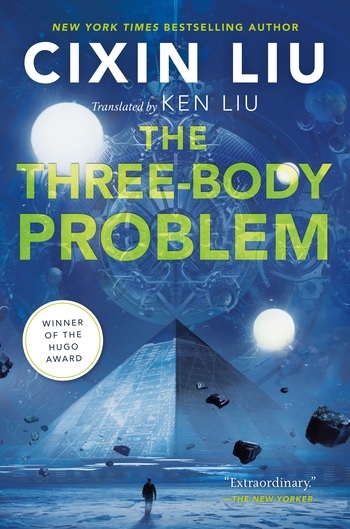 When I first read Liu Cixin's The Three-Body Problem (Tor, $17.99), I was surprised to find that the legendarily brainy science fiction novel began with lengthy passages set during and soon after the turmoil of China's Cultural Revolution. But perhaps I shouldn't have been, as the memory of the Cultural Revolution looms large among a generation of Chinese writers whose work is being translated into English. In The Three-Body Problem, Ye Wenjie's brutal experiences during the Cultural Revolution--her father is beaten to death during a struggle session--undermine her faith in humanity, to the extent that she aids an alien civilization in attempting to invade Earth.
When I first read Liu Cixin's The Three-Body Problem (Tor, $17.99), I was surprised to find that the legendarily brainy science fiction novel began with lengthy passages set during and soon after the turmoil of China's Cultural Revolution. But perhaps I shouldn't have been, as the memory of the Cultural Revolution looms large among a generation of Chinese writers whose work is being translated into English. In The Three-Body Problem, Ye Wenjie's brutal experiences during the Cultural Revolution--her father is beaten to death during a struggle session--undermine her faith in humanity, to the extent that she aids an alien civilization in attempting to invade Earth.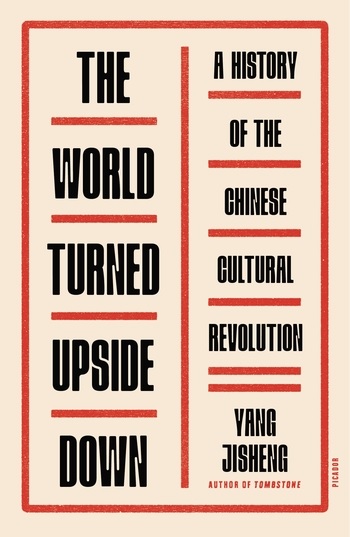 The roots of her disillusionment became much clearer to me after reading Yang Jisheng's incredibly comprehensive history of the Cultural Revolution, The World Turned Upside Down (Farrar, Straus and Giroux, $40), showing how Chairman Mao wielded the idealistic masses against his political enemies in a movement that degenerated into factionalism, chaos and violence.
The roots of her disillusionment became much clearer to me after reading Yang Jisheng's incredibly comprehensive history of the Cultural Revolution, The World Turned Upside Down (Farrar, Straus and Giroux, $40), showing how Chairman Mao wielded the idealistic masses against his political enemies in a movement that degenerated into factionalism, chaos and violence.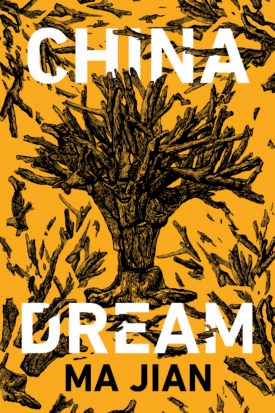 The book serves as a useful reminder of the disillusionment and terror of that era as President Xi Jinping works to reframe Chinese history in a more positive light, sweeping the Chinese Communist Party's past misdeeds under the rug. That purposeful erasure is the inspiration for Ma Jian's novel China Dream (Counterpoint, $16.95), whose title satirizes one of Xi's signature slogans. The protagonist is a corrupt Party bureaucrat whose dissolute lifestyle cannot shield him from traumatic memories of the Cultural Revolution. His only hope is to rewrite his mind with the aid of a "China Dream Device" that will align his thoughts with Xi's vision for China.
The book serves as a useful reminder of the disillusionment and terror of that era as President Xi Jinping works to reframe Chinese history in a more positive light, sweeping the Chinese Communist Party's past misdeeds under the rug. That purposeful erasure is the inspiration for Ma Jian's novel China Dream (Counterpoint, $16.95), whose title satirizes one of Xi's signature slogans. The protagonist is a corrupt Party bureaucrat whose dissolute lifestyle cannot shield him from traumatic memories of the Cultural Revolution. His only hope is to rewrite his mind with the aid of a "China Dream Device" that will align his thoughts with Xi's vision for China.


